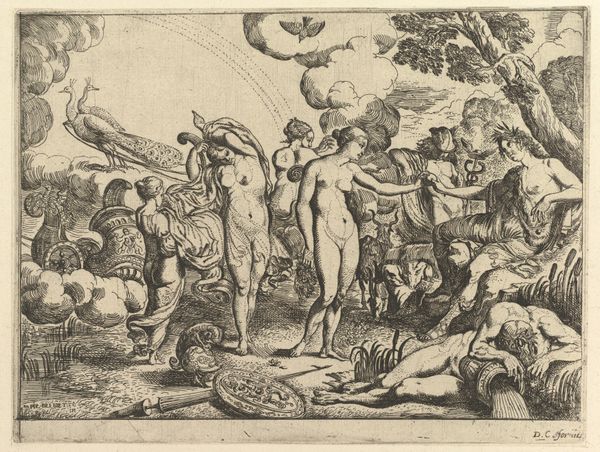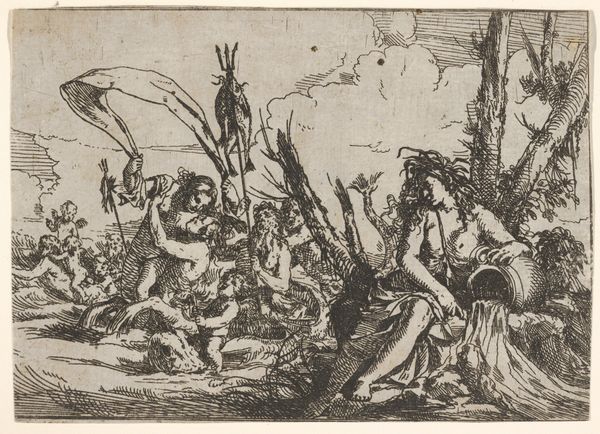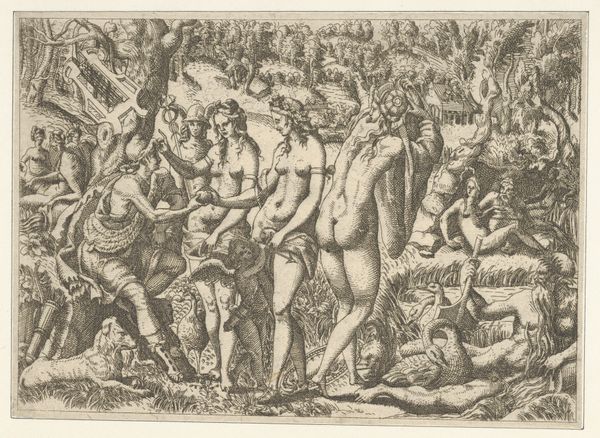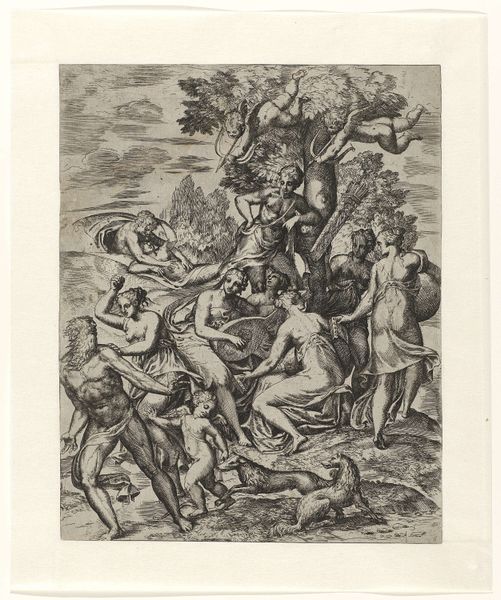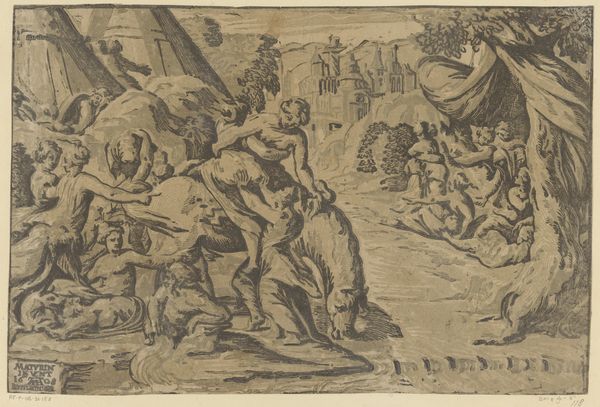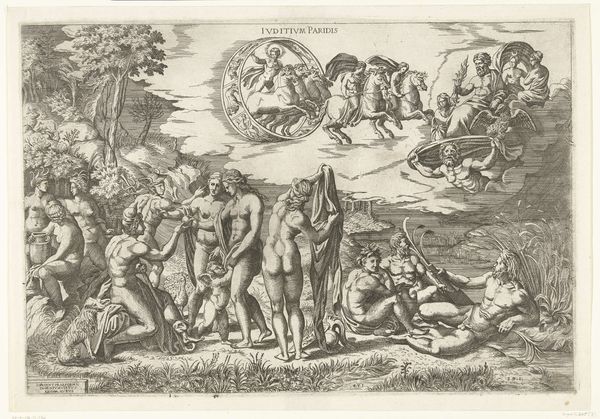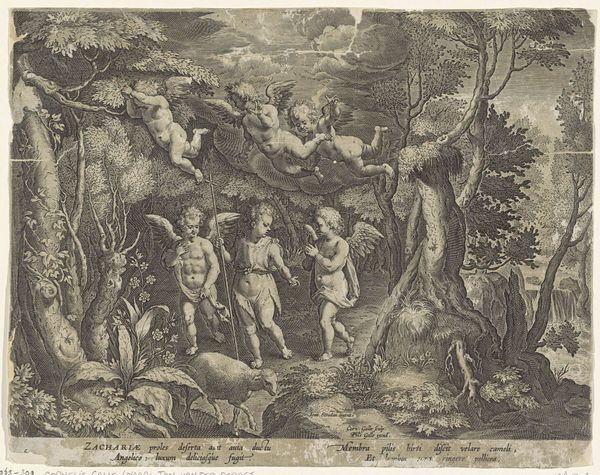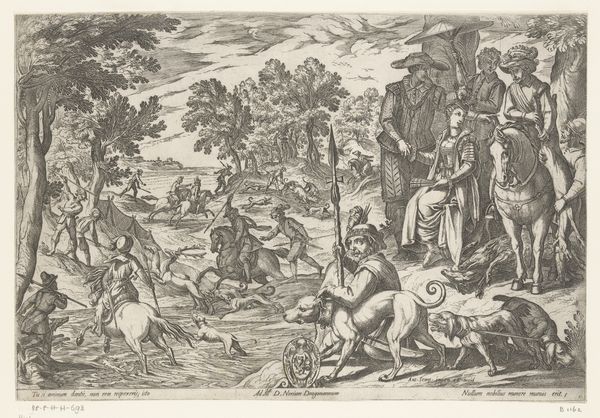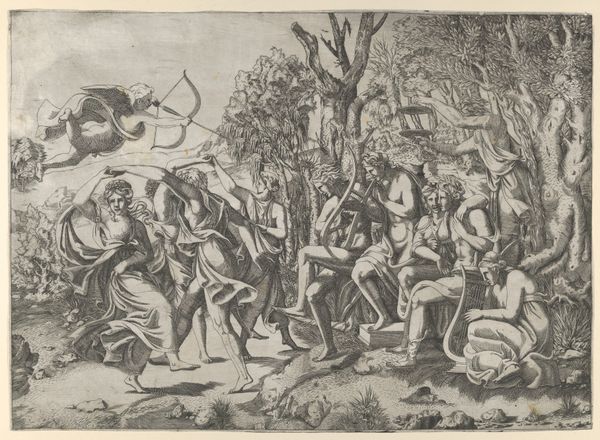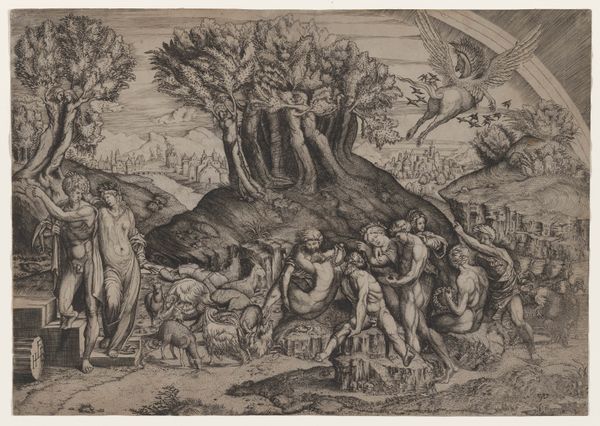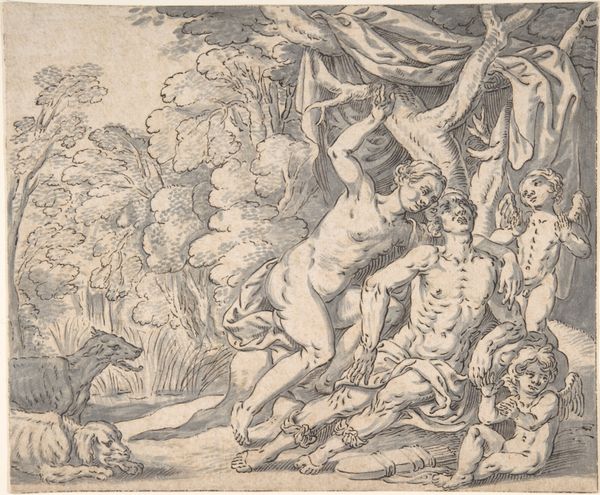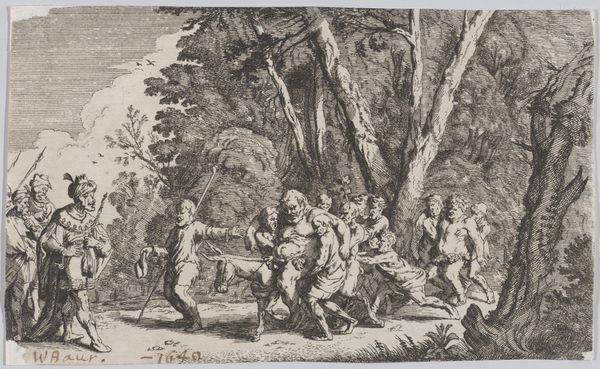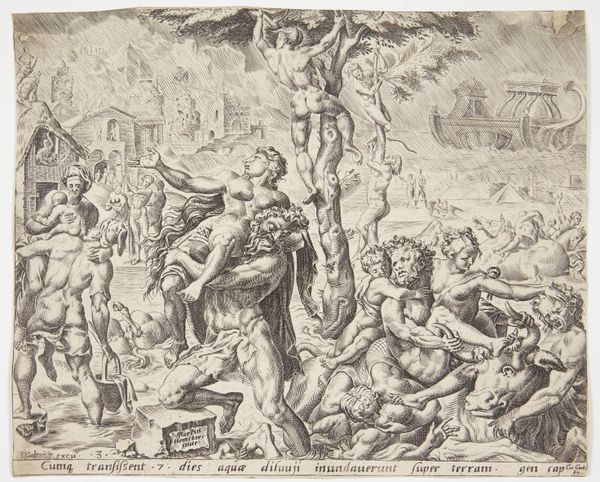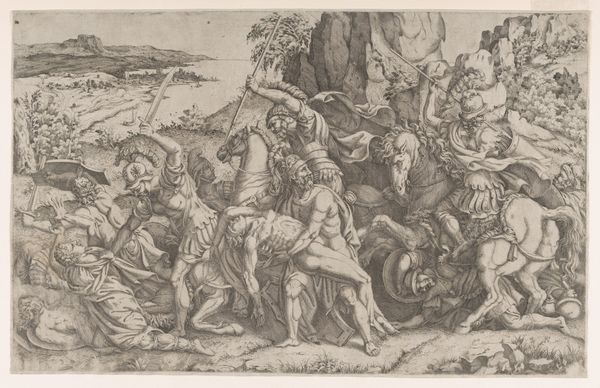
print, engraving
#
allegory
#
baroque
# print
#
figuration
#
line
#
history-painting
#
engraving
Dimensions: height 314 mm, width 390 mm
Copyright: Rijks Museum: Open Domain
Editor: Here we have Giovanni Andrea Podestà’s engraving, "Bacchus Meets Ariadne on Naxos," created sometime between 1618 and 1674. The frenetic energy really jumps out – so many figures in motion! What is your reading of this print? Curator: Considering the socio-political context, prints like these played a crucial role in disseminating classical narratives and aristocratic ideals. Bacchus's triumphant return, his encounter with the abandoned Ariadne, speaks to power, passion, and destiny – themes embraced by the elite. Notice the performative aspect, how Bacchus seems to be enacting the fulfillment of Ariadne's fate. Editor: You mention "performance"... does that tie into how the image might function in a broader public sphere? Curator: Precisely. Images such as these weren’t just aesthetic objects. They served as visual propaganda, solidifying social hierarchies and promoting classical learning as a symbol of power. Who would have likely viewed a print like this, and where? Editor: Hmm, probably wealthy collectors, academics, or other artists in private collections. So the engraving isn’t necessarily about democratic viewership… it's more about reinforcing the established order? Curator: Absolutely. Its cultural value resided in affirming, through the use of allegory and symbolism, a shared set of elite values and knowledge. It almost certainly was commissioned with specific aims and by a specific patron. Editor: It’s fascinating how a seemingly simple mythological scene carries such loaded social meanings. I'll definitely look at prints differently now! Curator: Indeed! By examining the production and consumption of images like this, we uncover their active participation in shaping historical narratives and power dynamics.
Comments
No comments
Be the first to comment and join the conversation on the ultimate creative platform.
